new posts in all blogs
Viewing: Blog Posts Tagged with: Published Elsewhere, Most Recent at Top [Help]
Results 1 - 23 of 23
How to use this Page
You are viewing the most recent posts tagged with the words: Published Elsewhere in the JacketFlap blog reader. What is a tag? Think of a tag as a keyword or category label. Tags can both help you find posts on JacketFlap.com as well as provide an easy way for you to "remember" and classify posts for later recall. Try adding a tag yourself by clicking "Add a tag" below a post's header. Scroll down through the list of Recent Posts in the left column and click on a post title that sounds interesting. You can view all posts from a specific blog by clicking the Blog name in the right column, or you can click a 'More Posts from this Blog' link in any individual post.
I wrote about T.D. Allman’s Finding Florida, a history of the state, and a history of the state’s fake history of itself, for the latest Bookforum. An excerpt:
“Nude face-eating cannibal?” Carl Hiassen wrote last year, when the infamous video surfaced. “Must be Miami.”
It sounds like a joke, but throw in the overpass, homeless victim, and fundamentalist drug-addict murderer, and there really are no other contenders. At least the rest of the world has some inkling of this now. As Hiassen says, explaining the Sunshine State’s endlessly inventive dysfunction has gotten easier since the 2000 presidential election. But even natives may be surprised, reading T.D. Allman’s tremendous 500-year history, Finding Florida, to learn just how much of the insanity is nothing new under the sun.
Almost a century and a quarter before Bush v. Gore, the outcome of the 1876 presidential election hinged on a Florida recount…
The rest is available in print, or to subscribers.
For Tin House’s site, I write about finding solace for the slow pace of my own novel in the writing of Donna Tartt and my friend Alexander Chee.
“Search is a deep human yearning, an ancient trope in the recorded history of human life.” Please get to know Ellen Ullman’s novelistic and critical brilliance (which I discuss at length at Salon) if you haven’t yet.
“The model I saw was that a writer was someone who sat at the table writing.” At B&N Review, I talk with writer, bartender, and NYT Mag drink columnist Rosie Schaap about her new book Drinking With Men.
I wrote about Mary McCarthy’s dissertation-worthy The Group for Bookforum’s summer Money issue. Print only, for now at least. Please let her Paris Review interview (with a young Elisabeth Sifton!) whet your appetite.
Fannie Farmer’s Food and Cookery for the Sick and Convalescent and Robin Bellinger’s “Feed a Fever, Starve a Cold” inspired my latest New York Times Magazine mini-column.
Sometimes (rarely, but sometimes) when you’re sick you need something other than a hot toddy.
My latest New York Times Magazine columnlet draws on a passage from H.L. Mencken’s The American Language (1921) about the word “bug.”
“An Englishman,” he says, restricts its use “very rigidly to the Cimex lectularius, or common bed-bug, and hence the word has highly impolite connotations. All other crawling things he calls insects. An American of my acquaintance once greatly offended an English friend by using bug for insect. The two were playing billiards one summer evening in the Englishman’s house, and various flying things came through the window and alighted on the cloth. The American, essaying a shot, remarked that he had killed a bug with his cue. To the Englishman this seemed a slanderous reflection upon the cleanliness of his house.”
 In a footnote, Mencken elaborates: “Edgar Allan Poe’s ‘The Gold Bug’ is called ‘The Golden Beetle’ in England. Twenty-five years ago an Englishman named Buggey, laboring under the odium attached to the name, had it changed to Norfolk-Howard, a compound made up of the title and family name of the Duke of Norfolk. The wits of London at once doubled his misery by adopting Norfolk-Howard as a euphemism for bed-bug.”
In a footnote, Mencken elaborates: “Edgar Allan Poe’s ‘The Gold Bug’ is called ‘The Golden Beetle’ in England. Twenty-five years ago an Englishman named Buggey, laboring under the odium attached to the name, had it changed to Norfolk-Howard, a compound made up of the title and family name of the Duke of Norfolk. The wits of London at once doubled his misery by adopting Norfolk-Howard as a euphemism for bed-bug.”
Even today, slang guru Jonathon Green confirmed when I asked him on Twitter, the UK “does use ‘bedbug’ but otherwise, I would say UK still mainly [uses] ‘insect.’” A British friend of mine agrees, but says of the Mencken passage, “nowadays bug has no connotations of uncleanliness, it’s just not used. The only time an English person says bug to mean insect is ‘don’t let the bedbugs bite’ and no modern British person’s ever had bedbugs, so it’s just a saying, not an insult! We know that it’s a general American term for insect, but we tend to call insects by their species, generally — fly, beetle, ladybird, etc — or, if we need a catch-all euphemism, we’ll say ‘creepy-crawly’ or in Scotland ‘beastie’ (or ‘wee beastie’).”
As the plague spreads, visitors to the UK may wish to make linguistic adjustments.

By: Maud Newton,
on 2/12/2012
Blog:
Maud Newton
(
Login to Add to MyJacketFlap)
JacketFlap tags:
minicolumn,
cabbies,
hackney carriage,
Culture,
Reviewed/Discussed Elsewhere,
anniversaries,
charles dickens,
Published Elsewhere,
nytmag,
Add a tag
My latest New York Times Magazine mini-column is on London’s taxi drivers, who memorize 25,000 streets and 20,000 landmarks to obtain a license; they emerge from the training with a larger hippocampus. In the smaller city of his day, Charles Dickens also mastered the roads — to avoid being overcharged. But eventually, as he explains in an essay published in 1860 in All the Year Round, an interview with one man left him with “a more charitable view of the business and trials of cab-driving.”
My wife, accompanied by a servant, and our first-born, an infant, aged three months, had started, one November afternoon, to visit a relative at the other side of London. The day was misty, but when the evening came, the whole town was filled with a dense fog, as thick as soup. I gave them up at an early hour, never supposing that they would attempt to break through the black smoky barrier, and accomplish a journey of nearly nine miles. In this I was mistaken, for towards eleven o’clock the door-bell rang, and they presented themselves muffled up like stage-coachmen. The account I received was, that a four-wheeled cab had been found, that they had been three hours and a half upon the road, that the cabman had walked nearly the whole way with a lamp at the head of his horse, and that he was now outside awaiting payment.
I felt a powerful struggle going on within me. The legislature had fixed the price of cab-work at two shillings an hour, or sixpence a mile, but it had said nothing about snowstorms, fluctuations in the price of provender, or November fogs. There was no contract between my wife and the cabman, and she had not engaged him by the hour, so that, protected by the Act of Parliament, I might have sent out four-and-sixpence for the nine miles’ ride by the servant, and have closed the door securely against the driver. Actuated, perhaps, as much by curiosity, as a sense of justice, I did not do this, but ordered the man in, and gave him the dangerous permission to name his own price. He was a middle-aged driver, with a sharp nose, and when he entered the room, he placed his hat upon the floor, and seemed a little bewildered by novelty of his situation.
“If I am to, I am,” he said,” but I’d my rather leave it to you, sir.”
“This is a journey,” I replied, “hardly within the meaning of the act, and whatever you charge, I will cheerfully pay.”
“Well,” he said, with much deliberation, “I don’t think five shillin’s ought to hurt you?”
As you probably know if you encountered any news source of any kind last week, February 7 was the 200th anniversary of Dickens’ birth. In honor of the occasion, the Guardian filmed Simon Callow on Dickens’ London, the British Council sponsored a readathon, A.N. Devers

By: Maud Newton,
on 2/7/2012
Blog:
Maud Newton
(
Login to Add to MyJacketFlap)
JacketFlap tags:
ray bradbury,
miami herald,
plato,
twilight zone,
madeline miller,
patroclus,
robot teachers,
south florida landmarks,
Culture,
Reviewed/Discussed Elsewhere,
iliad,
Published Elsewhere,
achilles,
minicolumn,
electric grandmother,
Add a tag
I’m behind on everything around here, even linking to my New York Times Magazine mini-columns. Recently I’ve written about: plans to turn the old Miami Herald building into a casino; the (partial) realization of Ray Bradbury’s dream of robot teachers; and, courtesy of Madeline Miller and Plato, The Iliad as love story between Achilles and his man Patroclus.
Bradbury’s comments about robot teachers appeared in a 1974 letter to Brian Sibley. And his short story, “I Sing the Body Electric,” about a girl and her electric grandmother, inspired one of my favorite old Twilight Zone episodes — favorite even though it gave me nightmares — and a mini-series (clip above).

By: Maud Newton,
on 12/12/2011
Blog:
Maud Newton
(
Login to Add to MyJacketFlap)
JacketFlap tags:
architecture,
Reviewed/Discussed Elsewhere,
catholics,
evangelicals,
Published Elsewhere,
Art & Design,
crystal cathedral,
hour of power,
philip johnson,
robert schuller,
Religion,
Culture,
Add a tag
The Crystal Cathedral of “Hour of Power” fame is the subject of my latest New York Times Magazine mini-column. Not so long ago the most lavish symbol of U.S. Protestantism, the building sold in bankruptcy last month to a Catholic diocese.
Although the congregation has agreed under the terms of the deal to vacate the premises after three years, pastor Sheila Schuller Coleman, daughter of founder Robert H. Schuller, assures her flock, “lest you think that it’s too late for a miracle, I want to reassure you and remind you that it is not too late. There is still time for God to step in and rescue Crystal Cathedral Ministries.”
Bonus reading: Joseph Clarke’s “Infrastructure for Souls,” on the “parallel histories of the American megachurch [including the Crystal Cathedral] and the corporate-organizational complex.”

By: Maud Newton,
on 12/12/2011
Blog:
Maud Newton
(
Login to Add to MyJacketFlap)
JacketFlap tags:
poetry,
PEN,
bob dylan,
Reviewed/Discussed Elsewhere,
nyt,
lucinda williams,
paul muldoon,
Published Elsewhere,
leonard cohen,
elvis costello,
christopher ricks,
paul simon,
rosanne cash,
Music,
Culture,
Add a tag
My mini-column for last week’s New York Times Magazine is on poetry and song. King David viewed them as natural companions, but these days they’re seen as distinct, unrelated arts.
Accepting Spain’s Prince of Asturias Award for Letters recently, musician and poet Leonard Cohen implicitly took David’s view. He spoke of learning a progression of six flamenco chords from a mysterious young Spaniard who soon killed himself. “It was those six chords,” Cohen said, “it was that guitar pattern that has been the basis of all my songs and all my music… Everything that you have found favorable in my songs, in my poetry are inspired by this soil.”
And he expressed unease over the honor. “Poetry comes from a place that no one commands and no one conquers. So I feel somewhat like a charlatan to accept an award for an activity which I do not command. In other words, if I knew where the good songs came from, I’d go there more often.”
Related: Christopher Ricks, Jonathan Lethem, and Lucinda Williams on the case for Dylan as poet; PEN New England’s new prize for excellence in song lyrics, judged by Paul Simon, Elvis Costello, Rosanne Cash, Paul Muldoon, and others; The Village Voice’s jokey list of contenders for the award; and, courtesy of my friend Michael Taeckens, Rimbaud and Jim Morrison. And, just for fun, Roger Miller and Dave Hickey on Hank Williams’ hooked-up verse.
Angry birds — and especially smart, angry birds — aren’t just the subject of my latest NYT Mag mini-column. Because my mom collected and bred parrots, they’re something I’ve spent far too much time pondering.
Did you know that crows develop grudges against people and can impart them to their flocks? Or that African Greys are capable of labeling and counting objects and grasping the concept of zero? Or that birdsong appears to be in some sense grammatical? Often parrots use their powers for good, and not evil, of course. As far as we know.
Daphne du Maurier (above), who wrote “The Birds,” about an avian apocalypse, said the idea came to her after she saw a farmer ploughing a field while seagulls dived above him, and she imagined the birds “becoming hostile and attacking.” Evidently she disapproved of Hitchcock’s also harrowing, more famous adaptation.
If you click through to the BBC interview, you can watch her talking about her life and work for almost 50 minutes. The clip opens at her typewriter, “the standard ‘the author at work’ establishing shot except for du Maurier’s super-strong finger-punching technique on the keys.” Though du Maurier made her living as a writer, she also dabbled in painting.

By: Maud Newton,
on 11/21/2011
Blog:
Maud Newton
(
Login to Add to MyJacketFlap)
JacketFlap tags:
Neuroses,
nytmag,
sandstorm,
Culture,
texas,
great depression,
Reviewed/Discussed Elsewhere,
the grapes of wrath,
dust bowl,
woody guthrie,
steinbeck,
Published Elsewhere,
drought,
Add a tag
Similarities between our time and the Great Depression era are extending beyond the fiscal crisis.
My latest New York Times Magazine mini-column looks at a sandstorm, “Steinbeck-ish in its arrival,” that rolled through Lubbock, Texas last month, as a harbinger of a possible impending (and permanent) Southwestern Dust-Bowlification. “I expected at any moment to see a line of Model Ts coming through headed to California,” a city councilman said. “It really did look like pictures I had seen of the Dust Bowl of the 1930s.”
See (and hear) also a tour of Grapes of Wrath country as of 2009 and Woody Guthrie’s “Talking Dust Bowl Blues” (above).
The first installment of my new microcolumn, “The Historical Record,” ran in The New York Times Magazine on Sunday alongside some other quickies, including Lizzie Skurnick’s brilliant (and useful!) “That Should Be A Word.” This one concerns astrology, from Chaucer to Susan Miller.
A friend who, like me, is drawn to the stars, says astrology shouldn’t and possibly doesn’t work at all, that it’s just really easy for those of us who are attracted to and adept with metaphor to stretch the system to fit reality. I don’t disagree with her, exactly — of course I don’t, I’m a Gemini — but it doesn’t take more than a drink or two with friends before I’m pulling out my iPhone to look up their charts and their lovers’ charts and to ponder their synastry…
As I mentioned in the columnlet, Miller and I talked about Occupy Wall Street, which she attributes to a square between Uranus and Pluto that will recur into 2015; she believes the demonstrations will continue at least until then. (There was also a strong Uranus-Pluto aspect during the the Civil Rights Era, she points out. And the last time Pluto was in Capricorn, as it is now, the American Revolution happened.) “The universe always pushes us back onto the rails,” she says, predicting less government gridlock and a better housing market next year.
Like most of her readers, I became aware of Miller online, where the zodiac is big business these days. Many sites offer “personalized” computer-generated reports, round-the-clock transit predictions, and even phone consultations; Miller is more like a magazine columnist, posting general monthly forecasts for each star sign at her site, Astrology Zone. I asked her what she thinks about the explosion of Internet astrology.
“You need to know the provenance of the advice,” she said. “A lot of Internet advice is unsigned, which means there’s no yardstick.” She’s heard of many sites that “hire college girls — ‘A’ students in English — who have beautiful writing skills but no astrological background.”
What surprised me most was her response to my mention of Liz Greene, a Jungian analyst-astrologer I like whose “psychological horoscopes” are sold at Astro.com. “I don’t do psychological astrology,” Miller said. “I am very practical. I don’t presume to tell you what you’re thinking or feeling.” (But that’s my favorite part!)
My (waterless) chart, if you’re curious:

In the food issue of the New York Times Magazine, out this weekend, writers answer various questions. Mine was “How does rattlesnake taste?” Obviously I roped Dana, Max, and Nick in, and obviously we intended to follow (to the extent possible) Harry Crews’ instructions.
Tracking down a diamondback in New York City proved impossible, even after I took to Ask Metafilter. Unlike Crews’, our snake arrived in the mail, skinned and gutted, stripped of head and tail. Coiled on the cutting-board, it looked like a garden hose made of filleted haddock.
And as we took a cleaver to it, laboriously hacking it into one-inch slices, the spine was so thick and resistant to cutting, I found myself wondering if hedge clippers would be more effective, or at least less likely to result in someone losing a finger.
Although Crews warned against overcooking, he didn’t provide concrete guidance on timing. (He always said writers should be prepared to take work as short-order cooks, so perhaps it was presumed we’d know intuitively.) Within three minutes the first batch was dry and crunchy and inedible, the breading shriveled against the bone, the lean meat evidently having been boiled completely away.
On second try, the fritters (“steaks,” Crews calls them, but this native Texan just can’t use that term to encompass such stingy game) were juicier. The flesh was still hard to locate, though, trapped as it was in thick, slanted Vs to each side of the spiny vertebrae up top. (Maybe I overcooked it all and have unfairly maligned the dish.)
As Dana says, “God bless Harry Crews (one of my favorite authors, and one of the many subjects Maud and I first bonded over when we met nearly nine years ago) but I’m not sure I’ll be taking any food or beverage recommendations from him in the future.” We ate the snake with cornbread and fried okra, and a salad for the veneer of health, and we followed it up with her amazing berry pie.
You can read about the actual taste of the snake — and other ways to prepare it — over at the Times Ma
It would probably be funny if I hadn’t grown up in absolute terror of being Left Behind. Okay, it’s kind of funny anyway, as long as I don’t have to be sober.
My latest piece for The Awl is about the convergence of my fortieth birthday and Harold Camping’s predicted May 21 Rapture, but it’s also about a lot more, including fervent agnosticism, existential dread, interesting passions, and how happy I am to be back in touch with my (former preacher) mother.
Photo credit: mementosis.
My Cracker Barrel ornament story will be included in the Significant Objects book, forthcoming next year from Fantagraphics.

By: Maud Newton,
on 6/15/2010
Blog:
Maud Newton
(
Login to Add to MyJacketFlap)
JacketFlap tags:
brad gooch,
elizabeth hardwick,
flannery oconnor,
paris review diary,
usage pedantry,
Personal,
kingsley amis,
Published Elsewhere,
muriel spark,
everyday drinking,
Add a tag
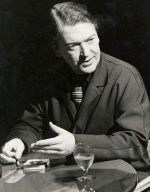 I can’t believe I forgot to link to the second installment of my Paris Review Daily Culture Diary.
I can’t believe I forgot to link to the second installment of my Paris Review Daily Culture Diary.
It’s not any sexier than the first, I’m afraid, but if you’re craving more usage pedantry, solo drinking tips, or line-editing blow-by-blows, you won’t want to let this one pass you by.
Here’s one of the mouse-over notes:
After reading Brad Gooch’s biography of Flannery O’Connor last year, I internalized her (and Elizabeth Hardwick’s) prohibition against allowing the same word to appear twice on a page, and my prose strains in places as a result. I wonder: did O’Connor read Muriel Spark? If so, confronted with such hilarious and inarguably brillliant repetitions — see, e.g., the sticks* — how could she have continued to adhere to her rule? Also how did Spark reuse words so imaginatively? She built humor through the sameness but somehow made the descriptions fresh every time. I wish she could revise this scene I’m getting ready to work on now, the one with the dogs in the car.
As predicted, Caitlin Roper’s issue of The Paris Review was waiting in my mailbox on my return from Florida. I turned first to my friend Victor LaValle’s essay, which is just great, and then to the R. Crumb interview, which you won’t want to miss if you’re a fan, and then, fingers quivering with anticipation, I read the Katherine Dunn story.
* Mouse-over note from the first installment: “By now there are passages I could almost quote from memory — especially the post-funeral scenes involving the writer with rheumatoid arthritis slouched over ‘two sticks,’ making his way among the funeral flowers as the other elderly characters goggle at him. The novelty of the Scottishism (’sticks’ rather than ‘canes’) tickles me, of course, but it’s the perfect, deadly repetition of the word — all the glimpses of the ‘clever little man doubled over his sticks’ — that makes this section so funny.”

Joshua Glenn and Rob Walker created the Significant Objects project earlier this year to prove the theory that a writer could invest an otherwise worthless object with value by making up a story about it.
That’s my object, above, and you can find out its (invented) provenance at the Significant Objects site. A preview:
This astonishing “Cracker Barrel” artifact appears to be a souvenir of modern vintage, representing a down-home North American restaurant-and-country-store chain that upholds Christian values by refusing to hire gay people. In fact, the object dates to the Bronze Age and was unearthed last week in the vicinity of the Dead Sea, on what is believed by several prominent archaeologists to be the site of the ancient cities of Sodom and Gomorrah.
The rest is here, and at Ebay. By default, proceeds from the sale go to the author, but I’ll send whatever this object garners to Girls Write Now, a nonprofit organization I support (and serve on the board of).
Prior Significant Object contributors include Colson Whitehead, Aimee Bender, Jennifer Michael Hecht, William Gibson, Laura Lippman, Lizzie Skurnick, Nicholson Baker, Todd Levin, Ben Greenman, Terese Svoboda, Shelley Jackson, Rosecrans Baldwin, Katharine Weber, and Matthew Battles.
The site will also feature contributions from Victor LaValle, Jonathan Lethem, Mark Sarvas, Jonathan Ames, and others.
 I am excited and kind of stunned to say that Narrative Magazine has awarded me its annual fiction prize for an emerging writer, for “When the Flock Changed.”
I am excited and kind of stunned to say that Narrative Magazine has awarded me its annual fiction prize for an emerging writer, for “When the Flock Changed.”
The story is actually an excerpt from a novel I’ve been writing — and writing about writing — for an embarrassingly long time. Here’s how it opens:
My mother was a preacher until the cops shut her down. Well, okay, she kept at it halfheartedly in our living room for a while, but the fire had wiped out not just her warehouse church and the halfway house she ran out of it, but her passion, her commitment, and maybe even, deep down, her belief. All those years of serving the Lord, of taking to the streets to let the homeless and addicted and just plain lonely know what a friend they had in Jesus, and now she had no proper house of worship, no sea of folding chairs or repository of sermons on tape. She was practically a layperson. Worse, her flock knew it and was slipping away.
You can read the rest here. Thank you, Narrative.
 In the run-up to the spring issue, Narrative magazine has named my novel excerpt, When the Flock Changed, Story of the Week — meaning that it’s out from behind the Backstage wall, so you can read for free.
In the run-up to the spring issue, Narrative magazine has named my novel excerpt, When the Flock Changed, Story of the Week — meaning that it’s out from behind the Backstage wall, so you can read for free.
I’ll be reading from the piece at Housing Works this Wednesday at an event also featuring new work from Kate Christensen and Lizzie Skurnick.
 Granta’s Fathers issue includes nine writers’ recollections of their fathers. For Granta.com, the magazine has invited newer writers, including Jim Shepard, Gary Shteyngart, Rabih Alameddine, and me, to reflect on a photo of their dad.
Granta’s Fathers issue includes nine writers’ recollections of their fathers. For Granta.com, the magazine has invited newer writers, including Jim Shepard, Gary Shteyngart, Rabih Alameddine, and me, to reflect on a photo of their dad.
My contribution is up today; here’s the first paragraph:
Exactly how long the prostitute, unbeknownst to my father, stayed at our house and slept in my bed is hard to gauge. Nowadays time lacks the expansive quality it had when I was eleven years old. But more than three weeks and less than five months elapsed between the day she moved in and the terrible afternoon he noticed her crouching behind the frosted glass shower door in the front bathroom, and kicked her out.
The rest is over at the Granta site, where you can also read print contributions from Jonathan Lethem, Francesca Segal, Ali Smith, and others, and listen to Joseph O’Neill and Jonathan Lethem reading about and discussing their fathers.

I know, you thought it would never happen, and given how long I’ve been working on the thing, I can’t say I blame you.
But an excerpt from my novel(-in-progress) is up at Narrative Backstage today, alongside audio readings from James Salter, Donald Hall, and Ann Beattie, new fiction from Richard Bausch, Stuart Dybek, Josh Weil, and Charlie Smith, new nonfiction from Rick Bass, and much more.
Originally this post contained a disquisition on the autobiographical and made-up aspects of the piece, but I thought the better of that long-windedness. Suffice it to say that it’s called fiction for a reason. Here’s the start of the excerpt:
When the Flock Changed
My mother was a preacher until the cops shut her down. Well, okay, she kept at it halfheartedly in our living room for a while, but the fire had wiped out not just her warehouse church and the halfway house she ran out of it, but her passion, her commitment, and maybe even, deep down, her belief. All those years of serving the Lord, of taking to the streets to let the homeless and addicted and just plain lonely know what a friend they had in Jesus, and now she had no proper house of worship, no sea of folding chairs or repository of sermons on tape. She was practically a layperson. Worse, her flock knew it and was slipping away.
The church ladies saw the blaze as a sign of God’s disfavor. Mom had created a makeshift dorm in the sanctuary, a commercial space, and one of the guys had fallen asleep with a joint still burning. Maybe she shouldn’t have spent so much time ministering to the riffraff when there were perfectly normal people’s problems to attend to. Our Heavenly Father wouldn’t have let the church burn down if she’d been in tune with Him and His Word. So the flock was saying.
I think my little sister, Faith, and I knew, even as we stood that sunny August morning beside the scorched remains of folding chairs and tambourines, worried for our friends who’d been living there, that the church would end up shuttered. As Faith paced and kicked up anthills, I surveyed the wreckage. A shard of my friend Luke’s rainbow bong glinted along the periphery. He’d only been out of the mental hospital for a few months and didn’t need any more trouble. Glancing over to make sure the cops weren’t watching, I stooped and slid the iridescent glass into my pocket. A second later one of the officers turned. “Behind the yellow tape,” he yelled, motioning toward me as if directing traffic. “This is a crime scene.”
Three policemen took measurements, one shouted into a CB, another scrawled notes. Mom batted her eyelashes, tried to talk to them, but they weren’t especially interested in what she had to say. The detectives had already interviewed her. “Step aside, ma’am,” one of them said.
Our mother wasn’t used to being treated like that. She was plump, sure, but she had a pretty face, a large chest, and thick blond hair. She had yellow cat eyes that she insisted were also blond. Mom was like a high school cheerleader for God—and, like a cheerleader, she was accustomed to deference. And a large following.
In the weeks that followed, Mom stood in the backyard, hands in her pockets, staring at the pool, until standing still became too much effort. Then she dropped into a lounge chair. As the position of the sun changed, she followed the shade, staying close enough to the water to dip her feet in and glide them back and forth. But even these desultory activities failed to give full expression to her ennui, and at last she took to her bed. She’d sleep till around noon. Then she’d venture to the kitchen for coffee to fortify her for the grueling afternoon lineup of Hawaii Five-O and Carol Burnett Show reruns.
She announced that she’d no longer be driving Faith and me to school. “We live close enough for y’all to just march your own little butts down there,” she said. “And unfortunately, I’m sure you can also find your way home.” Then she lay back down and pulled the sheets over her head. A whiff of sour air escaped from the covers. They smelled like old people and old people’s problems, and I vowed that I would shower twice a day for the rest of my life so my bed would smell only of shampoo and deodorant soap and maybe some exotic perfume.
If you’d like to read the whole thing now — whether because you’re excited to see it or you’ve been sharpening your knives — you’ll have to pay $3. (Or submit to the current contest and gain access to all of Narrative Backstage.) When the next issue of the magazine goes live online, access will be free. Eventually the print issue will be available at your local bookstore.
In case you’re wondering, “When the Flock Changed” isn’t the title of my book. I’m keeping that part to myself for now, because I really like it and am desperately hoping no one else will use it.




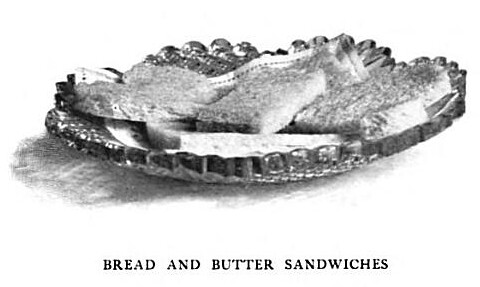
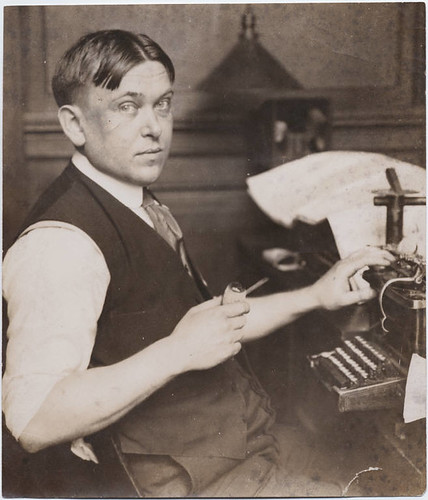




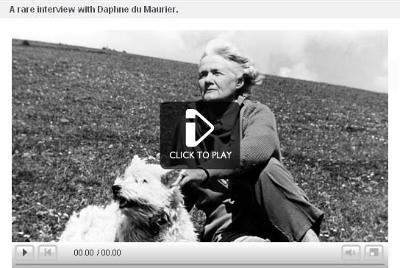
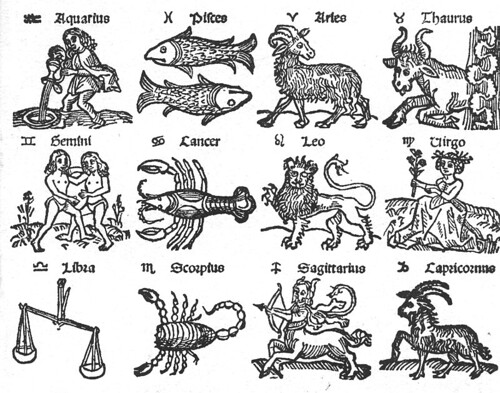


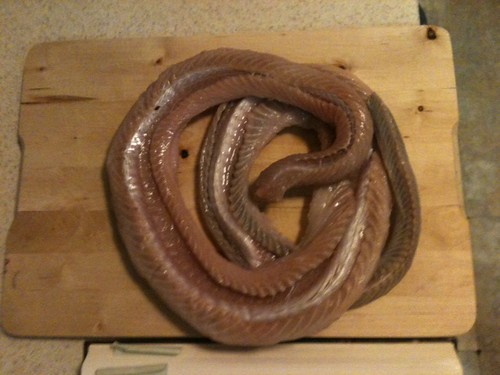
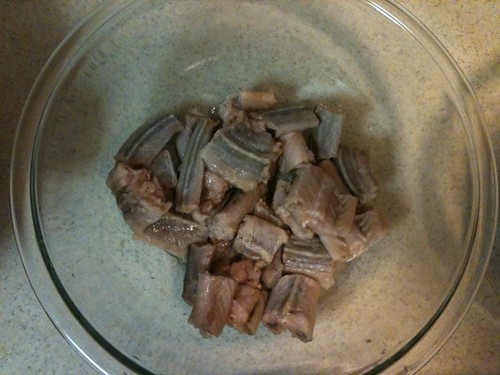

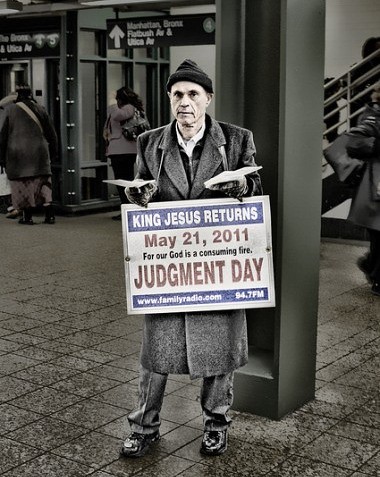
 I can’t believe I forgot to link to the second installment of my
I can’t believe I forgot to link to the second installment of my 
 I am excited and kind of stunned to say that
I am excited and kind of stunned to say that  In the run-up to the spring issue,
In the run-up to the spring issue,  Granta’s
Granta’s 